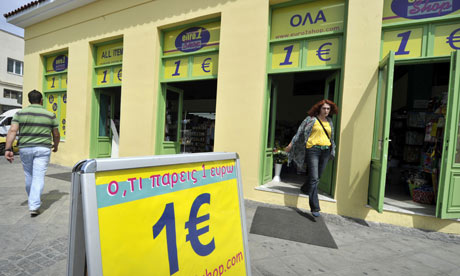ΠΗΓΗ: GUARDIAN
της Robin Wells
Sometimes, just sometimes, economics and politics are like physics – one can recognize immutable forces. One of those times is now, as Greece is inexorably pushed out of the euro. It took no particular talent to have seen this coming, just the recognition that it has always been a fantasy to believe that the Greeks would democratically choose to destroy their economy for the better part of a decade in order to pay foreign creditors.
The fact is that Greece never was a suitable member of the eurozone. That the Greek economy was extremely inefficient, that corruption was rife, that the government budgets were perpetually out of control, and that the official statistics were not to be believed were widely known. But, as in many marriages, Greece's entry into the euro was a triumph of sentimentality and wilful blindness over realism.
The pity – in addition to the actual damage already inflicted on millions of Greeks – of this debacle is that it was never clear, and still isn't clear, that other countries, like Spain, will also be inexorably forced out. For the adjustment that Spain needs to make in order to stay in the euro was never as drastic as it was for Greece. While undoubtedly painful, it is probably still do-able.




